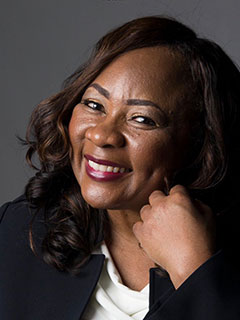We know that access to sanitation – just like access to clean air and water – is so often divided along race and class lines. But while there’s never been more awareness that environmental racism pervades the US, there’s not enough research detailing how – making solutions hard to come by.
For that reason, we’re excited to announce that Union is supporting a critical environmental justice project focused on sanitation inequality – one that every one of us can take part in.
 We are joining with the Guardian newspaper and the Center for Rural Enterprise and Environmental Justice in a project called “America’s Dirty Divide”. Led by the environmental justice pioneer and senior fellow at the Center for Earth Ethics Catherine Coleman Flowers, they have created this questionnaire to investigate how widespread this problem is. The project will investigate how many people in America do not have access to sanitation and sewage services – a problem endemic to many poorer communities and communities of color that has never been properly documented.
We are joining with the Guardian newspaper and the Center for Rural Enterprise and Environmental Justice in a project called “America’s Dirty Divide”. Led by the environmental justice pioneer and senior fellow at the Center for Earth Ethics Catherine Coleman Flowers, they have created this questionnaire to investigate how widespread this problem is. The project will investigate how many people in America do not have access to sanitation and sewage services – a problem endemic to many poorer communities and communities of color that has never been properly documented.
In particular, they’re looking for examples of sewage problems in homes or communities; poorly functioning septic systems; or poorly operating municipal sewage systems. Entire communities are living with sewage flowing into yards or homes, with terrible consequences for their health, economic stability, and dignity. Yet there is no sustained national effort to tackle this problem. (The Guardian’s first story since launching this project, about the town of Centreville, Illinois, is here.)
We would love your help in circulating the questionnaire to your contacts – clergy, other faith leaders, community activists, and anyone you think would be willing to respond or to take the questionnaire to their networks. The Guardian and CREEJ would also like to hear from you directly if you have experience with these issues, or familiarity with a community that you think they should look into.
If you have questions, suggestions, or ideas, please reach out to [email protected]. Thank you so much for taking the time to spread the word. It’s our hope that by exposing the scope of this issue, we’ll be able to catalyze efforts to address it.
